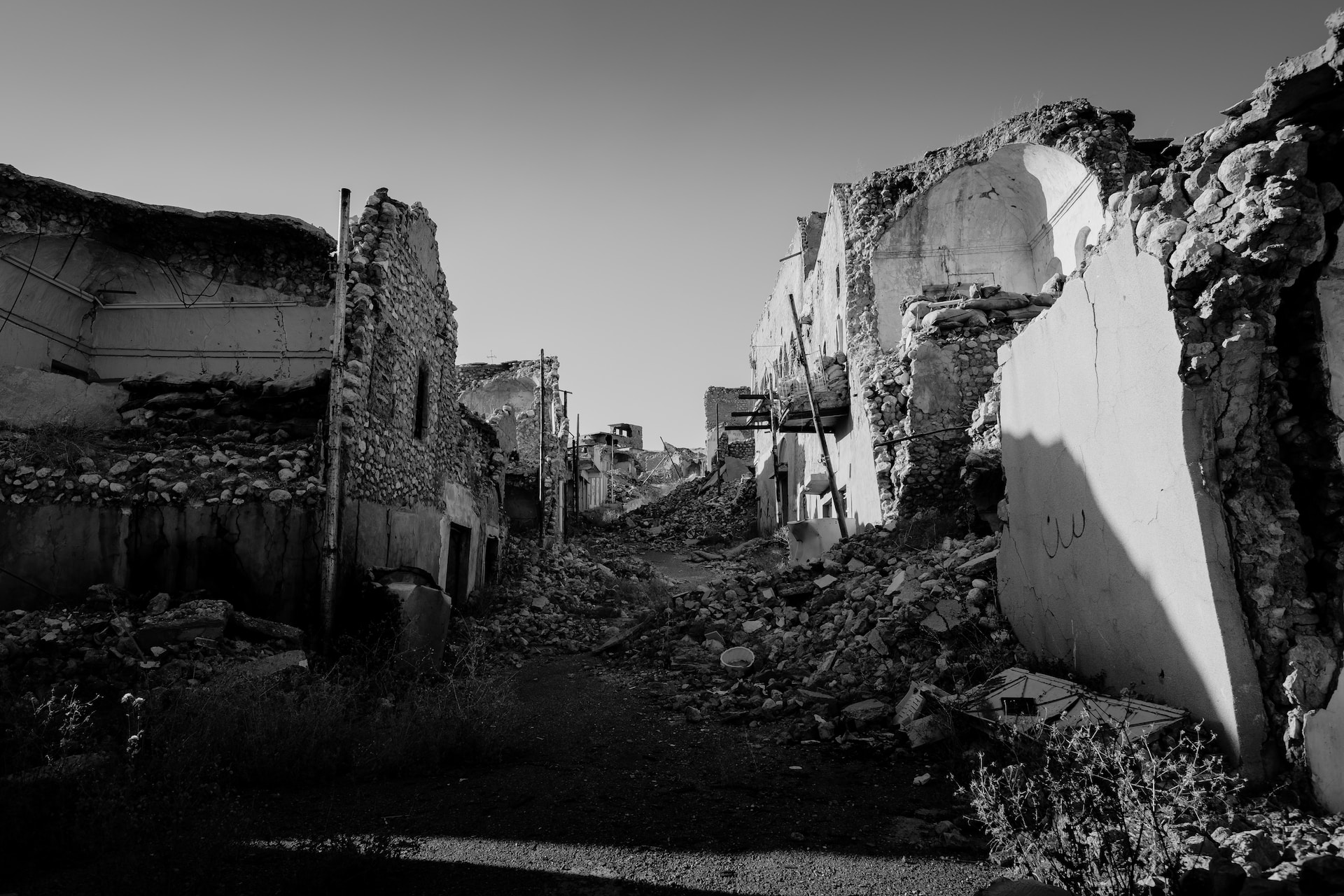Iran, Iraq and Syria Conflict
On January 16th of 2024 Iran’s Islamic Revolutionary Guard Corps (IRGC) launched ballistic missile attacks against targets within Iraq and Syria. The assaults represented an intensification of the shadow war between Iran and Israel, creating fears for a broader conflict.
Targets and justifications:
Iraq: The IRGC allegedly attacked an Israeli spy camp located in Erbil which is the capital of the autonomous Kurdistan Region. The assault allegedly killed four civilians and left another injured.
six others.
Syria: However, the IRGC claimed that it struck “anti-Iran terror groups” in northern Syria but did not mention specific locations and targeted entities.
Iran claimed that they were retaliating for Israeli attacks on Revolutionary Guard commanders and members of the Iranian resistance front. The IRGC reported that the targeted spy center in Erbil was used to develop espionage campaigns and plot terrorist operations against Iran.
International reactions:
Israel: The Israeli government did not appear to either confirm or deny the fact of a spy base in Erbil. Nevertheless, Israeli Prime Minister Benjamin Netanyahu made a subtle threat to Iran as he said: Israel will not tolerate any intrusion into her sovereignty or assault on the citizens of Israel.
Iraq: The Iranian strikes were seen as an act of aggression by the Iraqi government against its sovereignty and territorial integrity. The Kurdish Regional Government condemned the assault as a sin against Kurds.
United States: The US response castigated the Iranian strikes as cowardly and inaccurate, concerning civilian casualties.
United Nations: The UN Secretary-General cautioned all parties to refrain from any further provocation.
Concerns and potential consequences:
The Iranian missile attacks on Iraq and Syria have led to the emergence of serious concerns over a possible regional war in the Middle East. The following are some of the key concerns and potential consequences:
Increased tensions: The attacks have intensified the Iran-Israeli animosity, which could result in armed conflict between both parties.
Destabilization of the region: These attacks can make an already violent region even more volatile by escalating fighting in Iraq, Syria and other surrounding countries.
Civilian casualties: The attacks have also killed civilians, and further escalation could lead to more civilian deaths.
Disruption of regional diplomacy: And these strikes might undermine current attempts to resuscitate the Iran nuclear deal and other initiatives in terms of regional diplomacy.
Background:
The latest imbroglio between Iran and Israel has its roots in the historical conflict that the two countries have had over time. Iran sees Israel as not just a threat to its regional interests but also supports radical groups such as Hezbollah and Hamas that fight against the Jewish state. However, Iran charges Israel with sponsoring terrorism and developing nuclear weapons.
Recent events:
During December of 2023, there were a number of air strikes in Syria that the Iranian-backed militia groups. Iran attributed the attacks to Israel and threatened retaliation. On the sixteenth of January in two thousand and twenty-four, Iran conducted missile strikes on some Iraqi and Syrian targets with ballistic projectiles.
Targets:
Iraq: The IRGC said that it had hit an “Israeli spying base” in Erbil, the capital of Iraq’s semi-autonomous Kurdistan Region. It was stated to have killed four civilians and injured six others.
Concerns and potential consequences:
The Iranian attacks missed in Iraq and Syria, have caused serious worries about the possibilities of increased warfare within the Middle East. The following are some of the key concerns and potential consequences:
- Increased tensions: Indirectly, the attacks have added more tension to relation between Iran and Isreal over a possible direct military confrontation.
- Destabilization of the region: The strikes may make the already unstable region even more fragile and boost violence, chaos in Iraq, Syria and other nearby states.
- Civilian casualties: Even before the escalation in hostilities, Khashoggi’s murder caused some civilian casualties.
- Disruption of regional diplomacy: The strikes may disrupt ongoing attempts to restore the Iran nuclear talks and other peace initiatives in the Middle East.
Check How Ai is dangerous for humans
The Iran and Israel History
The real struggle between Iran and Israel was started long ago with the establishment of Israel in 1948. It has been shaped by a variety of factors, including:
- Ideological differences: In the case of Iran, which is led by the Islamic Republic since 1979, it compares Israel to a state with no rights that stands for Western colonialism. Israel needs to be both a Jewish homeland and an oasis of democracy in the hostile world.
- Regional competition: Today, the Middle East can be characterized by two powerful neighboring countries that compete for regional influence: Iran and Israel. This competition has been furthered by the Iranian support of Hezbollah and Hamas, Israel’s terrorists.
- The Palestinian issue: The Israeli-Palestinian conflict is one of the key issues that make Iran and Israel friction. Iran endorses the plight of Palestinians and considers such policies as Israeli conduct towards Palestinian nationals.
The relationship between Iran and Israel has gone through several phases:
- Early relations (1947-1953): In this respect, the two countries had a rather cool relation but not hostile. Although Iran did not support the UN partition plan that established Israel, it recognized this new country in 1948.
- Friendly period (1953-1979): After the 1953 coup, which returned Shah of Iran, Mohammad Reza Pahlavi back to power culminated in warming up Israel-Iran relations. But for the Shah, Israel was a crucial strategic ally against Arab nationalism and communism. The two countries worked together on various issues such as arms exports and intelligence sharing.
- Open hostility (1979-present): The 1979 Revolution in Iran led to radical changes of the foreign policy. It was led by the Islamic Republic, which had been entirely hostile to Israel under Ayatollah Ruhollah Khomeini. Israel was portrayed by Ayatollah Khomeini as a cancerous tumor that should be eliminated.
Since the Iranian Revolution, Iran and Israel have been engaged in an ongoing proxy conflict that has played out in various arenas, including:
- Support for opposing factions in regional conflicts: Therefore, Iran has sponsored terrorist organizations like Hezbollah and Hamas that have fought against Israel. Israel has supported anti-Iranian organizations.
- Cyberattacks: Each other’s cyberattacks have been linked to both Iran and Israel.
- Assassination: However, most assassinations of Iranian and Israeli officials are blamed on the other.
One of the instability drivers in the Middle East is a conflict between Iran and Israel. It may develop into a broad war that will also involve other regional powers
Current Situation:
The situation is still tense and unstable in terms of what would ensue days, weeks henceforth. All countries are therefore recommending all parties not to escalate the situation.


